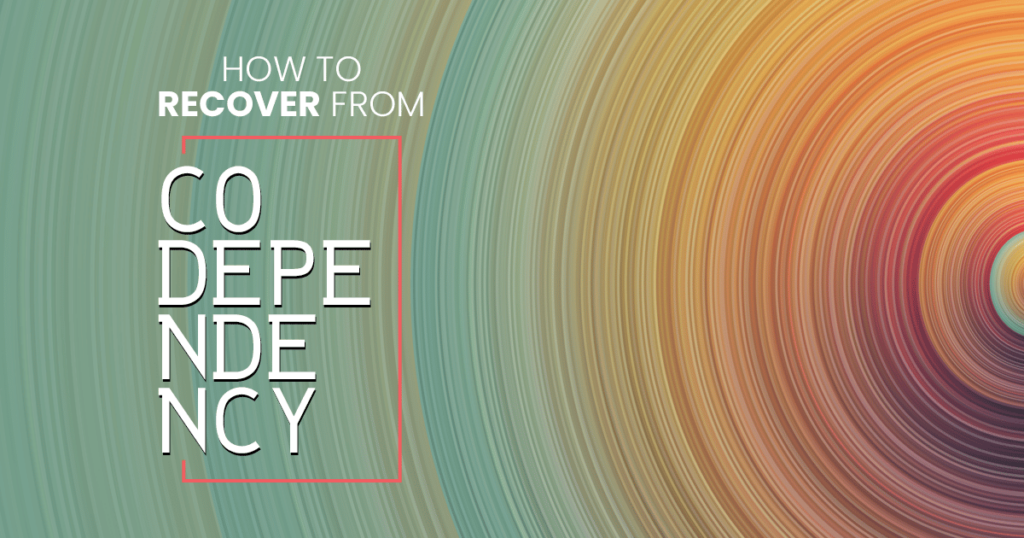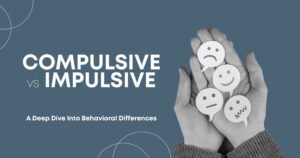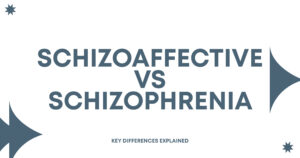An individual who is even remotely interested in learning how to recover from codependency has at least acknowledged that it might be something worth conquering. This person is part of a minority since most people dismiss the topic without ever trying to understand it.
Codependency isn’t just a relationship issue. It’s a personal one. It is a sure sign that the quality of your life has been left up to everyone but you. You could be afflicted and not even know it.
After all, codependency is not like a scrape on your elbow that screams out for a Band-Aid. No, it’s a more elusive condition that keeps you and the people close to you going in circles.
That’s why the statistics reflecting the percentage of the population that suffers from codependency would probably astound most people.
Melodie Beattie, in her internationally bestselling book Codependent No More, states it this way: “It’s tough enough to convince alcoholics (or other disturbed people) to get help. It’s more difficult to convince codependents – those who by comparison look, but don’t feel, normal – that they have problems.”
What Is Codependency?
Melodie Beattie, in the same book, shares her definition of a codependent person:
“A codependent person is one who has let another person’s behavior affect him or her, and who is obsessed with controlling that person’s behavior.”
Codependents are so preoccupied with relieving the pain of others they fail to tend to their own. They seem to have the gift of insight to understand people around them, yet they don’t take the opportunity to know themselves.
Sure, they feel their pain, but they ignore it in favor of directing their attention to fixing the problems of others. This generally results in relationship issues.
Codependency In Action
Let’s consider a scenario. For nine years, Mary has been living with her older sister Olivia, whose addiction to alcohol is rather serious. Despite the inconveniences, Mary has great compassion for her sister and handles most of the load – the housecleaning, shopping, finances, cooking, and maintenance.
After Olivia has her way with the bottle and leaves the room in disarray, her loyal sister, the “designated hitter,” bats clean-up as usual.
Despite her generosity, Mary is not the most cheerful person in the world. All these chores often get done as sarcastic remarks like “When accompany them are you gonna stop drinking and straighten out your life? What on Earth would you ever do without me?”
Her derogating pitches are returned with less harsh responses. “Yeah, okay, just fill my glass and leave me alone.”
Nothing changes. The next day, it’s the same drill.
If Mary has so much compassion for her sister, why does she talk to her like she can’t stand her? Do you suppose it’s because she resents juggling all the responsibilities?
A Chief Trait Of Codependency
Not exactly. Mary seems to thrive on keeping her sister reliant on her. This is a quintessential trait of codependency.
Even on those rare occasions when Olivia takes the initiative to help herself, like heading to the kitchen to pour another gin & tonic, Mary stops her. “Sit down. I’ll get it!.” Not once has she encouraged Olivia to make a move on her own, nor has she ever made any sincere effort to help curtail her sister’s drinking habit.
Mary has codependent characteristics that have never been addressed. Her behavior is indicative of a human being who is hurting inwardly. She also has other symptoms that are typical among codependents, one being low self-esteem. In addition, she often feels pity, anxiety, and even guilt for Olivia’s troubles as if they were her own.
However, her compulsion to see everything from the perspective of “having to take care of sis” keeps her from investigating her personal issues.
Mary’s way of temporarily soothing her pain is by degrading her sister. In turn, Olivia’s behavior and defensive comments keep the cycle going. It’s like two mismatched boxers in the squared circle. One fighter hooks and jabs while the other just pushes the aggressor away once in a while.
James Madison University describes codependent behavior as: “Codependency in relationships involves becoming so invested with each other that you can’t function independently.”
While suggesting that family dysfunctionality leads to codependency, Mental Health America states: “Dysfunctional families do not acknowledge that problems exist. They don’t talk about them or confront them. As a result, family members learn to repress emotions and disregard their own needs.”
How Your Codependency Emerged
As a child, it was perfectly natural to express certain codependent characteristics in the form of seeking approval and love from your parents. If they responded to you with healthy behavior, including warmth and reassuring words, you would have developed an internal dialogue consistent with that.
Feeling okay about yourself would be your regular daily experience as an adult.
On the flip side, if you did not receive that much-needed reassurance, your everyday life will likely be much different. This is how you established codependency.
You find yourself unconsciously seeking the love and validation you missed out on during those early years. Your codependent pleas for approval continue with no understanding of why they exist.
Why The Codependency Continues?
Your inner mechanism, known as your subconscious mind, runs the show. It causes you to live in a way that’s been practiced repeatedly. You live as though other people’s needs matter and yours do not.
Essentially, your subconscious mind keeps replaying a story that may be saying, “For me to get love, I must do this” or “In order to get approval, I must do that” concerning pleasing others. In other words, your sense of validation is not a given. Instead, they must earn it.
The Beginning Of The End Of Your Codependency
So, how does one break this self-defeating pattern? The codependent healing process begins when you can at least be aware of a pattern. You begin to realize that you have a habit of behaving in a way that’s meant to gain approval of one kind or another from someone else. That’s the first step.
This also extends to expecting other people’s conduct to meet your standards in order to validate your own behavior. When you can honestly see this, you’ve broken through.
The second step is to make a point of giving yourself this love and approval. You don’t need to seek a reason. Just do it with an unconditional mindset, which is crucial.
When you notice that you are inclined to do or say something in another’s presence while your objective is to “feel okay,” stop. Break the pattern.
This will also make it easier to accept others without requiring them to live up to your standards. Make a habit of this, and you’ll soon feel as though a huge weight has been lifted off of your shoulders.
After you have accepted your feelings, the third step is to embrace them. Is remaining in the drama of this feeling something you want to do? Or would you prefer to simply accept it for what it is and move on from there? Ask yourself, “How do I want to feel right now?”
Realize that you do have a choice. Honor yourself and your innate right to feel good.
Your feelings about yourself are not dependent on what you do for others or what someone else thinks.
Along with that, it’s not your job to make efforts to change how others feel.
| “Do not give your attention to what others do or fail to do; give it to what you do or fail to do.” – Buddha |
As we summarize these important steps, consider how they apply to you. Then implement them.
How to Recover From Codependency in 3 Steps:
- Recognize those moments when you tend to act in ways to gain needed approval from others.
- Stop acting in those ways and fill the void with unconditional acceptance of yourself and what you are feeling.
- Ask yourself how you really want to feel and honor that.
Throughout your entire codependent healing process, have compassion for yourself. Yes, love yourself. Understand that your codependent ways have been nurtured for quite a while.
Since it is a primary function of your subconscious mind to protect what it has known for a long time – it will resist your efforts to change your codependent tendencies.
If you’re interested in learning more about codependency, and toxic relationships, call (858) 258-9883 to talk to a member of the Mental Health Center of San Diego today.

















